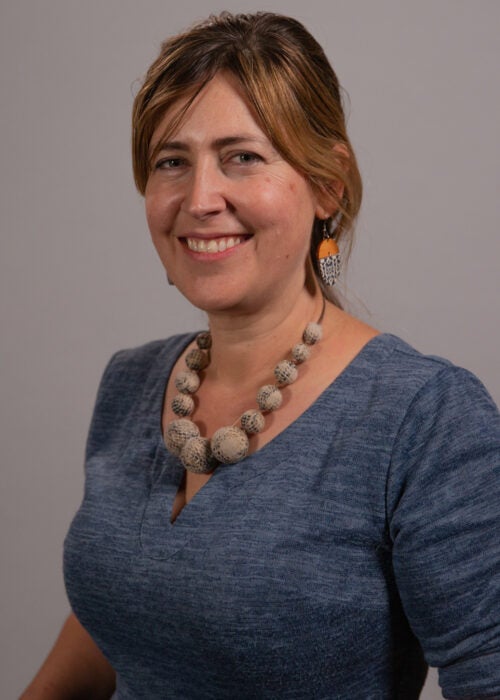Darby Saxbe

Education
- Ph.D. Clinical Psychology, University of California, Los Angeles, 5/2009
- B.A. Psychology & English Literature, Yale University, 5/1999
-
Summary Statement of Research Interests
How do family relationships get under the skin? My program of research seeks to answer this question, exploring both biological and social processes that take place within the rich interpersonal context of the family. I use interdisciplinary approaches, including modeling patterns of hormones like cortisol and testosterone and employing neuroimaging to understand the neural correlates of family relationship behavior.
I have two main, interrelated lines of research: the first investigates the impact of family environments and family transitions on parents, and the second investigates the impact of family environments on children.
My ongoing Hormones Across the Transition to Childrearing (HATCH) study, funded in 2016 by a five-year CAREER award from the National Science Foundation, follows first-time expectant parents from pregnancy across the first year postpartum in order to understand the factors that predict successful adjustment to parenthood. One unique feature of this study is its emphasis on fathers, who are often neglected within parent-child research.We conduct in-lab visits during pregnancy and at six months postpartum that include couple interactions (like a relationship conflict discussion and parenting discussion), psychosocial questionnaires, and sampling of hormones known to be dynamic across the transition to parenthood, such as cortisol, testosterone, oxytocin, and prolactin.
HATCH includes a neuroimaging substudy. We are scanning expectant fathers prenatally and then again at six months postpartum in order to assess the structural and functional changes in new fathers that accompany their transition to parenthood. This will be the first prospective study to examine change in the paternal brain from pre-parenthood to parenthood. We will look at prenatal to postpartum changes in brain volume, structural connectivity (using diffusion tensor imaging), resting state connectivity, and functional tasks that assess fathers’ responses to partner and infant stimuli.
For more information on my work and lab, please visit
http://dornsife.usc.edu/nestlab